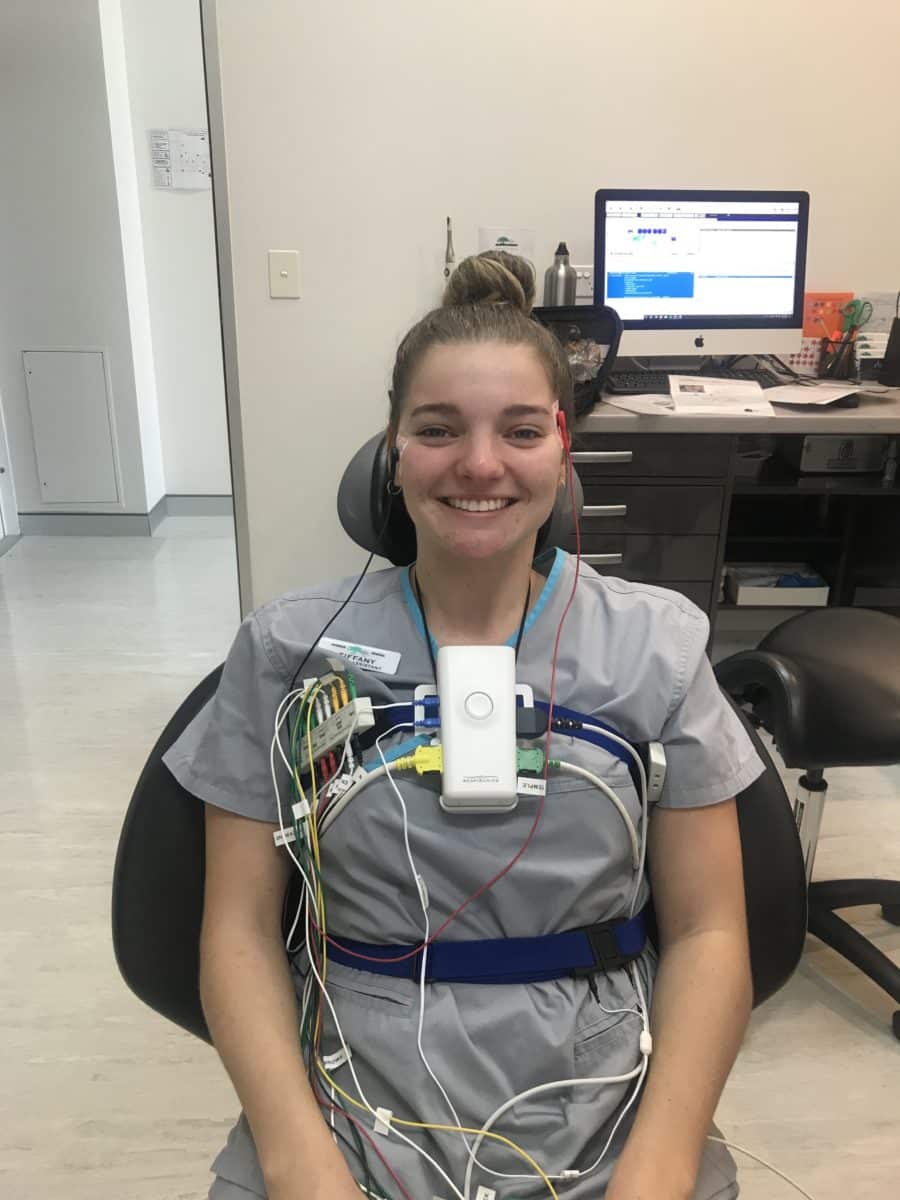Sleep Week Blog
Sleep and dentistry, how is it related?
How do you sleep?
* How long does it take you to fall asleep? If you fall asleep instantly then your might be overtired or if it is taking you longer then 15minutes then you might suffer from insomnia
* Do you wake through the night to urinate?
* Do you wake feeling refreshed in the morning or are you always feeling tired?
* If you answered yes to any of these it may indicate a sleep issue.
So who cares? Why is it so important to get sleep? The primary functions of sleep are for recover from fatigue, growth, immune protection, and memory consolidation; without proper sleep your body wont function properly and be in a chronic state illness or heightened fight or flight mode, constantly under stress.
So how many hours of sleep should we be getting?
* Kids (young kids) 11-13hrs, older kids 9-11hrs
* Adolescents 8-10hrs
* Adults 6.5- 8.5hrs
* Seniors 7-8 hrs
Some interesting Facts:
* If your child snores or heavy breathes they are 4 times more likely to be in the bottom of the 25% of the class, while 48% of child snorers are on ADHD medication.
* 1 in 4 men have a sleep disorder
* 1 in 10 women have a sleep disorder
* Snoring may simply increase your risk of having a stroke
* 70% of snorers have OSA (Obstructive Sleep Apnoea
There are many types of sleep disorders, however the main types related to dental professionals are Obstructive Sleep Apnoea (OSA), Insomnia (either getting to sleep or staying asleep) and Movement disorders such as Nocturnal Grinding (Bruxism). There are many medical issues, many of which are chronic diseases, that you may not realise that arise from sleep disorders. Heart issues including blood pressure, atherosclerosis and Cardiovascular disease can occur, increase risk for strokes and other systemic issues such as Reflux, Diabetes, Cancers, Nocturia (frequent nocturnal urination), Anxiety, Dry Mouth, and Skin issues can also arise.
The oral cavity is a part of the body’s airways, thus as dental professionals can see signs of sleeping disorders. We inspect teeth for tooth wear and cracking, which can be a sign of nocturnal grinding. We inspect the soft tissues for any trauma or burns which can show signs of silent reflux during sleep, and we look at the back of the throat; the airway including the soft palate and tonsils, because sometimes these are causing airway blockage or restriction.
Another sign of sleep or breathing issues may be if you are a nervous patient especially because you have that sensitive gag reflex, this usually means perhaps you struggle to breathe well though your nose, which is purely what it is designed for. Dentists are able to treat and manage sleep disorders in conjunction with a sleep physician.
Dental professionals may detect these signs and suggest having a sleep study as a first point of call. Leading from there we are able to detect if Bruxism (grinding) needs to be treated, or if there is an associated airway issue also (OSA), in which case that needs to be treated. We can make a type of splint or mouthguard, custom fitted and closely monitored to you, if OSA is only mild-moderate, while is the OSA is severe then usually a CPAP machine is recommended. Treatment for insomnia/other factors affecting sleep can be done individually such as diet, nutrition, toxicity, stress, lifestyles factors, sunlight, chronic infections. Alcohol, cigarettes, physical activity, food and medications are simple factors we can alter.
Creating a good night time regime can improve our quality of sleep: avoid food 2 hours before bed, alcohol 4 hours before bed, be careful with how much and when you are consuming caffeine, get enough physical activity through the day, try not to stress, (stress is a response to how we react to something), and nutrition is important because if we do not feed it the minerals and vitamin s required, certain process cannot occur.
Those important processes allow us to relax, (production of Serotonin/the happy hormone), and allow us to get to sleep (melatonin, the sleep hormone). In particular a lack of B vitamins, Zinc or Magnesium, due to diet or sometimes there is also a rare genetic condition that inhibits this methylation process and production of those hormones.

